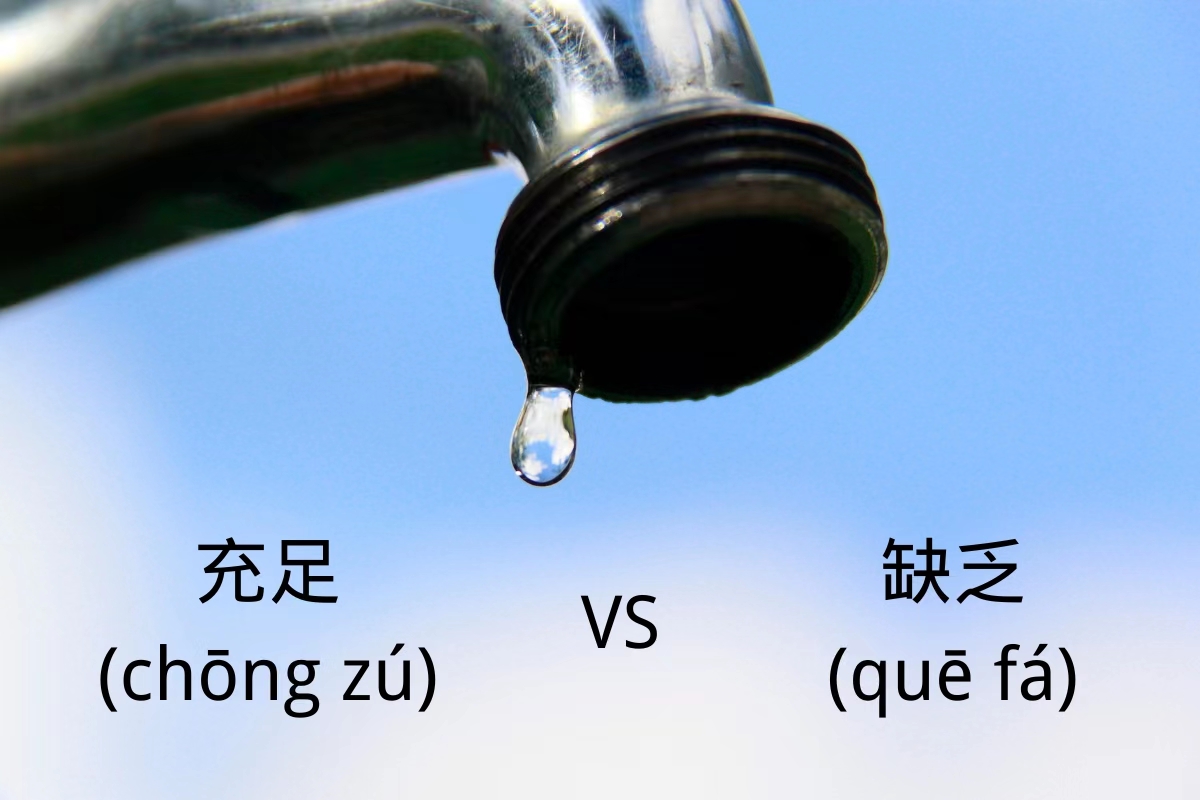HSK Words: 充足 (chōng zú) VS 缺乏 (quē fá)
In Chinese language learning, the HSK words 充足 (chōng zú) and 缺乏 (quē fá) are often confused as they seem to have opposite meanings. However, their usage and contextual meanings can vary. In this article, we will clarify the differences between these two words to enhance understanding and avoid confusion.

充足 (chōng zú) implies an adequate or sufficient supply of something, usually in terms of quantity or quality. It suggests that there is enough of a resource or material to meet the needs or requirements.
Examples:
- We have sufficient food reserves to cope with natural disasters.
我们的粮食储备充足,可以应对自然灾害。
wǒ men de liáng shí chǔ bèi chōng zú,kě yǐ yìng duì zì rán zāi hài。 - The company has sufficient funds to continuously expand its business.
这家公司的资金充足,能够持续扩大业务。
zhè jiā gōng sī de zī jīn chōng zú ,néng gòu chí xù kuò dà yè wù。 - Sufficient sleep is very important for good health.
充足的睡眠对健康非常重要。
chōng zú de shuì mián duì jiàn kāng fēi cháng zhòng yào。
缺乏 (quē fá) implies a shortage or absence of something, usually in terms of quantity or quality. It suggests that there is not enough of a resource or material to meet the needs or requirements.
Examples:
- This area lacks clean drinking water sources.
这个地区缺乏干净的饮用水源。
zhè gè dì qū quē fá gān jìng de yǐn yòng shuǐ yuán。 - The company lacks the innovative spirit to cope with market competition.
该公司缺乏创新精神,难以应对市场竞争。
gāi gōng sī quē fá chuàng xīn jīng shén,nán yǐ yìng duì shì chǎng jìng zhēng。 - He lacks experience, which caused him to perform poorly in the competition.
他在比赛中缺乏经验,导致成绩不佳。
tā zài bǐ sài zhōng quē fá jīng yàn , dǎo zhì chéng jì bù jiā 。
Quiz: Please consider whether to use 充足 (chōng zú) or 缺乏 (quē fá) in the following sentences.
- 在使用油漆前确保室内通风_____。
zài shǐ yòng yóu qī qián què bǎo shì nèi tōng fēng _____。 - 他的作品______想象。
tā de zuò pǐn _____ xiǎng xiàng。 - 她因_____睡眠而头脑昏沉。
tā yīn _____ shuì mián ér tóu nǎo hūn chén。
Answers:
- 充足 (chōng zú)
- 缺乏 (quē fá)
- 缺乏 (quē fá)